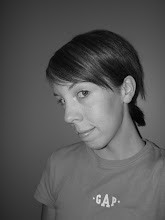To answer her main question the author explores the split agenda of postmodernism and postcolonialism in understanding contemporary society. She also asks us as intellectuals and feminists to question our intellectual place in postmodernity and postcolonialism and in feminist politics. The ideas of living with and embracing difference, and the construction of the social self through postmodernism are explored. McRobbie also recognizes that strength of feminism to go across and negotiate boundaries is what is needed to redefine the term "woman". When she speaks of this, I really enjoyed what she said about exploring boundaries by going back to them.
"How might the continual process of putting oneself together be transformed to produce the empowerement of subordinate and social categories...inventing the self rather than endlessly searching for the self (...)" (72) This quote was by far my favorite in this article. My first thought was of the saying that so many people speak,."I'm trying to find myself". It is like our "self" is suppose to be out there somewhere for us to find when in reality we should be creating ourselves. Why conform to the norms and be influenced by mainstream culture when you can create your own individual self? On a more personal note, up until a few years ago, I felt that I could never be truly happy because there was always something new coming out that meant that I wasn't up to par with what society expected of a twenty something year old. I just gave up at some point; I could not keep up. I could not "find myself" through conformity so I decided to "create" myself and will continue to do so as my life progresses. There is no one true self, life experiences will shape it and bring me to change and reflexion.

The same thing is implied for feminism and Women's Studies. There is no one true or unique identity. Like the author mentions it is an "amalgam of fragemented identities" and we should not try to label or give it a specific definition for it is ever changing. I am convinced that feminism needs to constantly question itself about whom it is speaking to, of, or for.

No comments:
Post a Comment